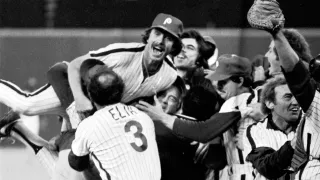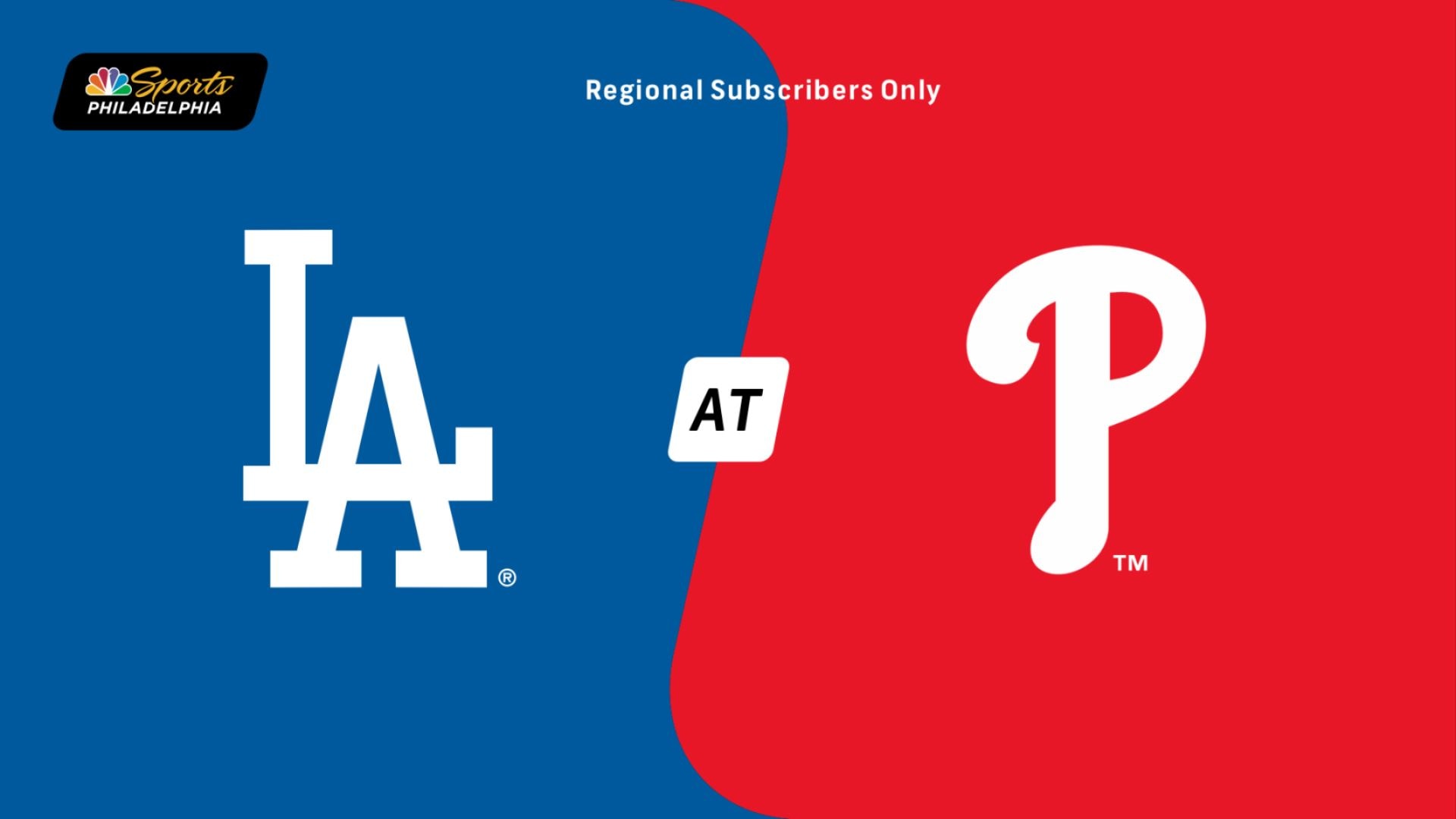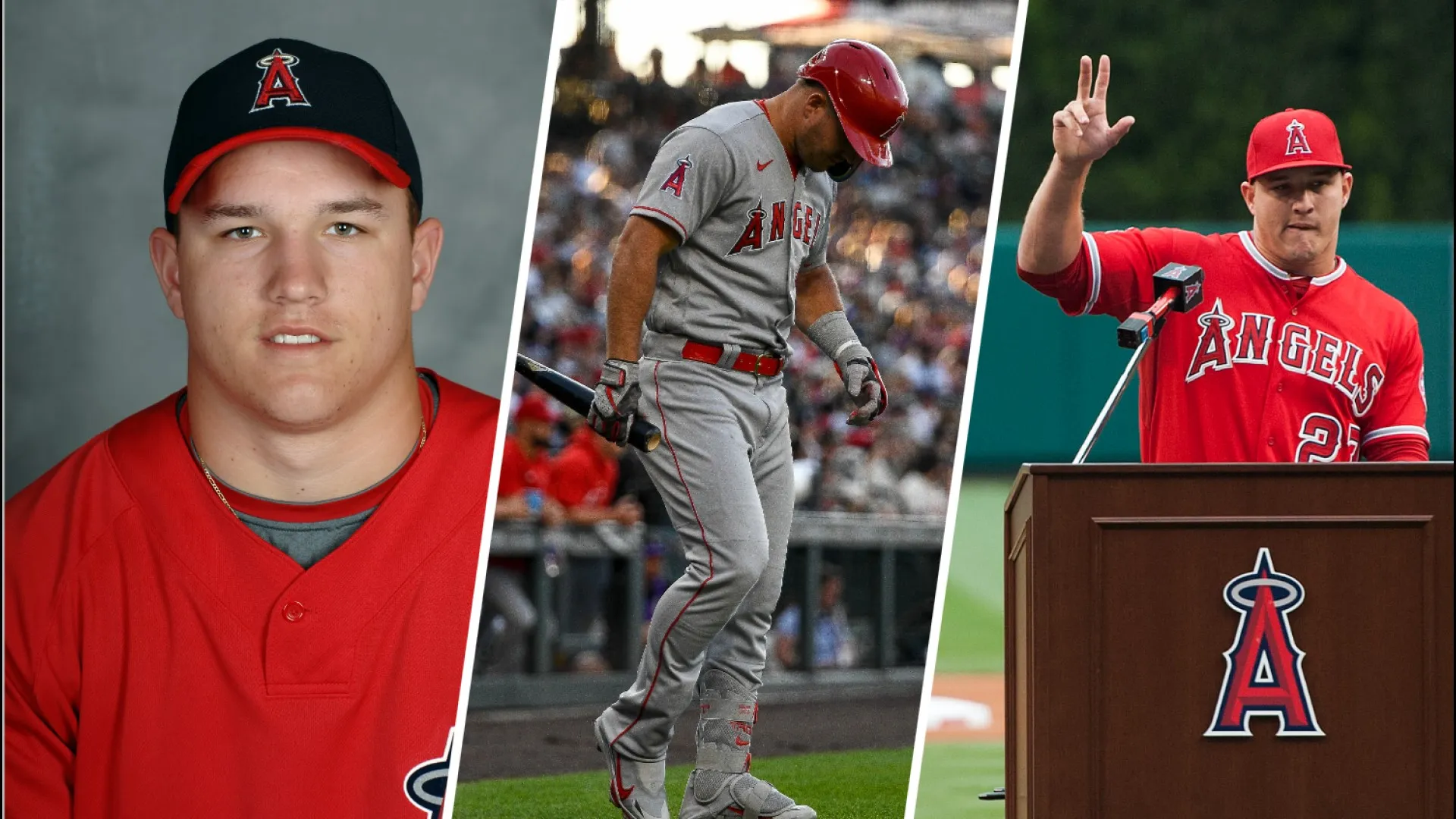
There’s still a lot of time left for 2020 to redeem itself, but we can all agree that it’s shaping up to be the worst sports year ever. No March Madness. All of the active pro and collegiate sports leagues suspending or canceling action as the world deals with the coronavirus pandemic. All of this comes on the heels of Kobe Bryant’s death. It’s been a rough year.
So in an effort to lighten the mood and perhaps think some good thoughts into the universe, let’s take a look at the five BEST years in Philly sports history.
5. 2001
This year (into 2002) saw the Eagles return to the NFC Championship game for the first time in over 20 years and give the Rams everything they could handle. It was also the season that confirmed Andy Reid was building something special.
The Flyers put together a 100-point campaign before losing to the Sabres in the playoffs.
Baseball saw a renaissance as the Phillies put together their first competitive season since 1995, taking the Braves to the final weekend of the season in the race to win the NL East.
Most importantly, the Sixers united the city as they made it to the NBA Finals before losing to the dynastic Lakers in five games. Who could forget the Game 7 wins over the Raptors and Bucks? Allen Iverson walked away from that year with an MVP and our collective hearts.
4. 1976
This is arguably the busiest year in Philadelphia sports history. The Spectrum alone hosted the Flyers-Red Army game, the NHL All-Star game, the NBA All-Star game, and the Final Four over an 11-week stretch as the nation celebrated the bicentennial in its birthplace.
The MLB All-Star game also made its way to The Vet in the summer. That came shortly after the Flyers made a third consecutive Stanley Cup Final appearance, losing to the Canadiens minus an injured Bernie Parent.
The Phillies made the postseason for the first time in 26 years, winning the first of three straight division crowns. Dick Vermeil was brought in to coach the Eagles and the Sixers acquired a forward by the name of Julius “The Doctor” Erving. Oh yeah, Bobby Clarke won his third MVP award.
3. 2008
This is a season that saw all four pro teams make the playoffs and three of those four reach the conference championship round in their respective sport. The Sixers lost in the first round of the playoffs after a pleasantly surprising regular season led by the Andres (Iguodala and Miller).
The Eagles made their last deep run under Andy Reid, reaching the NFC Championship game (in Jan. 2009) after upsetting Eli Manning and the top-seeded Giants in the Divisional Round.
The Flyers put together their own conference championship run behind the likes of Mike Richards, Jeff Carter and Simon Gagne before falling to the Pens.
But most significantly, the Phillies gave us an October to remember and cherish forever. A quarter century of title frustration evaporated night after night. Myers walk. Victorino slam. Stairs into the night. Kid Cole growing up into an ace. Brad Lidge. Eric Hinske. Ecstasy.
2. 1983
The Flyers won the Patrick Division this year, besting the then three-time defending Stanley Cup champion Islanders. It was not a good season for the Eagles, finishing 5-11 under first-year coach Marion Campbell. But the Phillies and Sixers more than made up for that, both reaching their league’s championship round.
The 1983 Phillies were known as “The Wheeze Kids,” a nod to the 1950 club while acknowledging the number of established veterans on this team. Future Hall of Famers Joe Morgan, Tony Perez, Mike Schmidt and Steve Carlton, as well as Pete Rose, were members of this club. Carlton won his 300th game in September. John Denny took home Cy Young honors. Lastly, this club exorcised the demon that was the Dodgers, beating L.A. in the NLCS en route to the pennant.
The Phils were not the only Philly team to beat L.A. in four games in 1983. The 76ers swept the NBA Finals against the Lakers, after dropping two of the previous Finals to them, thanks in large part to their MVP in the middle. Moses Malone wasn’t quite prophetic with his ‘Fo, Fo, Fo’ declaration. But fo’, five’, fo’ was plenty good enough to finally give Dr. J that elusive title.
1. 1980
Four teams. Four championship appearances. It’s almost incomprehensible.
The Sixers coasted through the Eastern Conference playoffs in 1980, eventually dispatching Rookie of the Year Larry Bird and the Celtics in five games. But in the Finals, it was another rookie, Magic Johnson, that would lead to their demise. The Lakers’ star filled in at center for Kareem Abdul-Jabbar and posted a 42/15/7 performance in L.A.’s series-clinching win in Game 6.
The Flyers were the second of the local teams to make a Final appearance in 1980. This came after the club set the record for longest unbeaten streak in North American pro sports history — 35 games without a loss from October 1979 to January 1980. Unfortunately, Leon Stickle and Bob Nystrom conspired to prevent the Flyers from lifting Lord Stanley’s Cup. The Flyers and Sixers were eliminated from their respective finals just eight days apart.
Dick Vermeil’s tenure as Eagles head coach reached its crescendo in 1980. The league’s best defense, coupled with a ball control offense, led to a 12-4 regular season and an NFC East crown. The Birds handled the Vikings at home in the playoffs before placing the clamps on the Cowboys in the NFC title game. It was the ultimate case of right opponent, right place, right time. The same could not be said of the Super Bowl two weeks later.
The one Philly team to actually win a title in 1980 was the one that needed it most. Entering that year, the Phillies had gone 96 seasons, their entire existence, without a championship.
Mike Schmidt led the way offensively. The 1980 NL MVP established himself as the best player in the game that season. But of course, it wouldn’t come easy. Schmidt needed to hit an 11th inning home run on the final Saturday of the season to clinch the NL East crown.
Then came the most tension packed League Championship Series to that point and arguably ever. Down 2-1 in the best-of-five series, the Phillies needed two wins in Houston to claim the pennant. The Phillies had to rally late in both games, once against Nolan Ryan, winning both times in 10 innings.
The World Series had slightly less drama but it still required a two-run rally in the ninth inning of Game 5 to give Tug McGraw a chance to close it out in front of 65,000 Phillies fans as well as several police horses and German Shepherds at The Vet in Game 6.
Tug threw. Willie Wilson fanned. We win.


